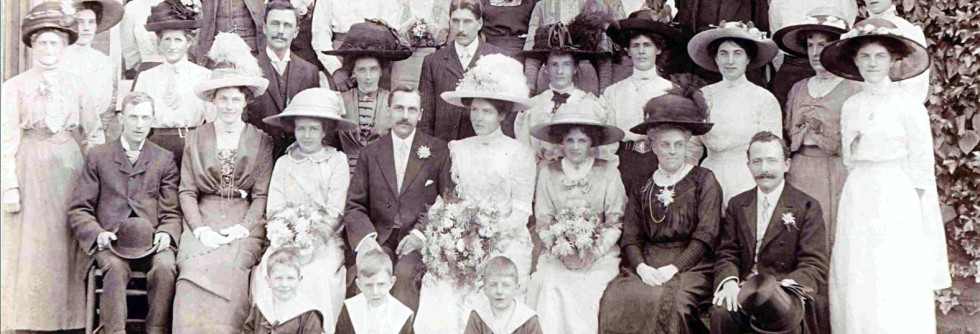That at Ballinlassa in Co Mayo on 31st Oct 1890 you did wilfully and maliciously throw stones and turnips at the door of complainant’s house at the same time you did throw stones down his chimney.1
Interesting use for turnips, but that’s the charge that was levelled at John and Michael Surdival of Ballinlassa by farmer Michael Molloy at the petty sessions of 28 November 1890 for County Mayo in Ireland. My great-grandfather Patrick Surdival (aka Patrick Sullivan) had younger brothers named John and Michael living at Ballinlassa, so perhaps it was his siblings who had peppered farmer Molloy’s door with turnips.
The petty sessions records provide a colourful backdrop to our ancestors’ lives. By reading through the pages, it soon becomes clear what elements were crucial to the success of their farming endeavours, and how they sometimes reacted to the stresses of their lives.
Allowing one’s cows or pigs to wonder through a neighbour’s fields eating grass or crops could get the offending livestock’s owner brought before the courts. On 12 July 1899, Michael Surdival was fined for allowing one cow, one heifer, and one calf to trespass onto John Surdival’s fields that were cropped in wheat and oats. I don’t know how the two men were related, but I am certain that they were.
The courts didn’t take a very long break for holidays. In fact, they were sitting on Christmas Eve, 1879, when Patt Bourke appeared in the Ballyglass Court in Co. Mayo, accusing one of his neighbours of allowing 64 sheep into Mr. Bourke’s turnips.
Bogs played a significant role in daily life as they provided a major source of fuel. Complaints from bog owners about damage caused by others were frequent. Michael Surdival and his wife Anne were accused in 1873 of cutting slabs from another’s bog, presumably to be used as fuel.

Forty years after the potato famine, poverty was still rampant in parts of Ireland. In the Ballyglass, Mayo petty sessions records for 1885, there is a heart-breaking account of two young girls, Mary and Bridget Surdival, aged 9 and 7 years who were charged with begging in a public road where they were caught receiving alms. In the absence of any social welfare programs, the girls were ordered to be sent to an industrial school in Westport, approximately 20 km from their home, and they were to remain there until the age of 16. I wonder what became of Bridget and Mary.
Sources
- National Archives of Ireland. Court Order Book, Ballyglass Petty Sessions Court, County Mayo. 28 November 1890. Defendants Surdival, John and Surdival, Michael. Collection: Irish Petty Sessions Court Registers 1828-1912. http://www.findmypast.com : accessed 27 March 2016.
- ibid. 12 July 1899. Complainant Surdival, John. Defendant Surdival, Michael.
- ibid. 24 December 1879. Complainant Bourke, Patt.
- ibid. 12 February 1873. Defendants Surdival, Michael and Surdival, Anne.
- ibid.20 May 1885. Defendants Surdival, Mary and Surdival, Bridget.
[print_link]


Permalink
That’s an interesting look at life in those times. Did you get any sense of what the punishments were for letting one’s animals eat others’ crops? I would think that would be fairly severely punishable.
Also why do you think your great grandfather took the two surnames of Surdival and Sullivan?
Permalink
The surname Surdival was found only in one small area of County Mayo at that time. My great-grandfather started using the surname Sullivan after he moved to Lancashire, and I suspect that the made the change because he got tired of trying to explain what his surname was.
With regard to punishment for allowing one’s livestock to ravage a neighbour’s crops, I cannot claim to have made an exhaustive study of the matter, but in the cases that I looked at the offender was ordered to pay the victim £1 6s. I believe that was a sizable amount for the period.
Permalink
My Sullivan ancestors in county Dublin had a similar legal issue. My Great-Grandfather was fined because his dog had wandered onto a public road without being muzzled. It was a law which had been enacted the previous year to prevent dogs from biting people, so it says in the record. Having these petty court session records available online gives us a interesting little glimpse into the lives of our ancestors.